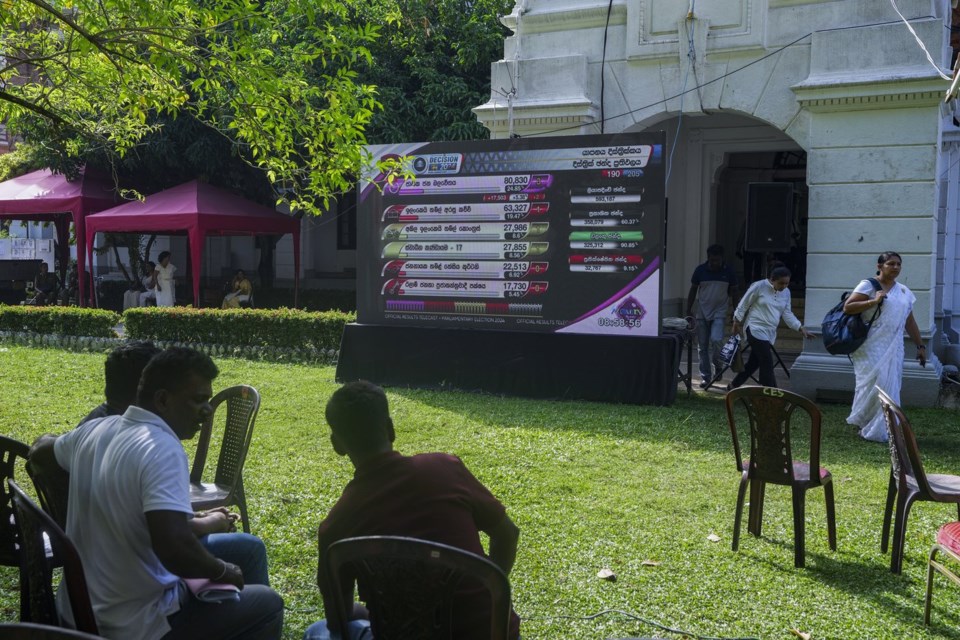COLOMBO, Sri Lanka (AP) — The party of Sri Lanka’s new Marxist-leaning President Anura Kumara Dissanayake has won a majority in parliament, according to official election results Friday, providing a solid mandate for his program for economic revival.
Dissanayake’s National People’s Power Party won at least 123 of the 225 seats in parliament, according to partial results released by the Elections Commission.
The Samagi Jana Balawegaya, or United People's Power Party, led by opposition leader Sajith Premedasa had 31 seats.
Dissanayake was elected president on Sept. 21 in a rejection of traditional political parties that have governed the island nation since its independence from British rule in 1948. But he received just 42% of the votes, fueling questions over his party’s outlook in Thursday’s parliamentary elections. But the party received large increases in support less than two months into his presidency.
In a major surprise and a big shift in the country's electoral landscape, his party won the Jaffna district, the heartland of ethnic Tamils in the north, and many other minority strongholds.
The victory in Jaffna marks a great dent for traditional ethnic Tamil parties that have dominated the politics of the north since independence.
It is also a major shift in the attitude of Tamils, who have long been suspicious of majority ethnic Sinhalese leaders. Ethnic Tamil rebels fought an unsuccessful civil war in 1983-2009 to create a separate homeland, saying they were being marginalized by governments controlled by Sinhalese.
According to conservative U.N. estimates, more than 100,000 people were killed in the conflict.
Of the 225 seats in parliament, 196 were up for grabs under Sri Lanka’s proportional representative electoral system, which allocates seats in each district among the parties according to the proportion of the votes they get.
The remaining 29 seats — called the national list seats — are allocated to parties and independent groups according to the proportion of the total votes they receive countrywide.
Krishan Francis And Bharatha Mallawarachi, The Associated Press



